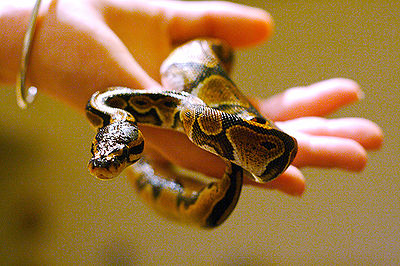You can usually tell when a human or an animal is asleep by their closed eyelids. But snakes don’t have eyelids and can’t blink, making it very difficult to determine when they are asleep. Most species of snakes are nocturnal and hunt at night. They sleep during the day for an average of 10 hours. […]
Snakes
Since snakes have been represented mainly as evil, people either enjoy having them as pets or turn away fearful.
While there are dangerous snakes, there are just as many that make fascinating pets.
Before considering a pet snake though, be sure your family and friends will accept the new addition.
It is said that watching the unhurried, calm movements of snakes have a very calming effect.
Unless you are a professional, do not choose a poisonous snake.
Be prepared as well to feed live food as that is all some snakes will eat.
Snakes are not like dogs or cats, they are mainly interesting to observe.
Be sure to research the particular snake you are interested in. As with any living creature, consider the commitment you must make to feed, house and generally care for a snake.
<!–
List of Snakes:
- Black Rat Snake
- Blacktail Cribo
- Borneo Short-tailed Python
- Corn Snake
- Do Snakes Blink
- Garter Snake
- Great Plains Rat Snake
- Inclusion Body Disease in Snakes
- Kingsnake
- Python
- Rosy Boa
- Sunbeam Snake
- Western Hognose
–>
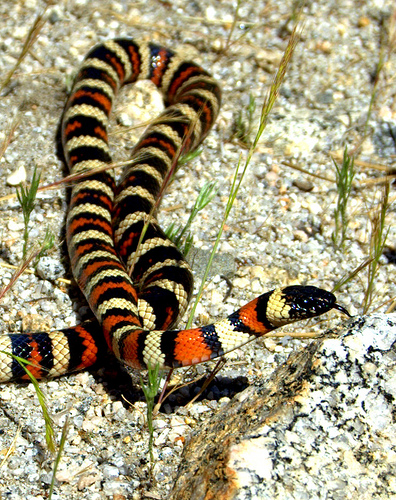
Kingsnake
What are Kingsnakes like? The California King snake is native to the Southwest U.S. from California to Arizona. Adult length is about 3-4 feet. They have interestingly patterned bodies and make good pets if handled gently. A 15 gallon tank that is secure should be provided. As with all snakes, check with the breeder about […]
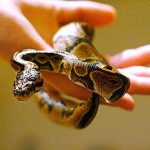
Inclusion Body Disease in Snakes
Inclusion Body Disease (IBD) is highly contagious within the snake family, primarily found in Boa Constrictors and Pythons. It affect mainly the nervous system, but other organs as well. There are microscopic changes seen in the snake’s body cells (nervous system, liver, kidneys, blood) known as inclusion bodies, giving the name to the disease. Researchers […]
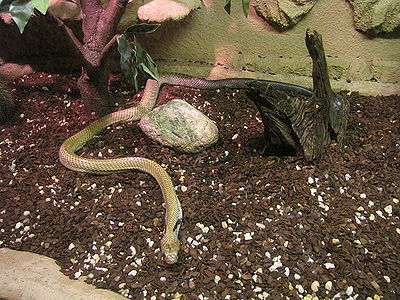
Blacktail Cribo
The Blacktail Cribo is one of a species of indigo snakes in the colubrid family. Colubrids are the largest family of mainly harmless snakes found worldwide except in Antartica. The Blacktail Cribo is native to Central America. The Blacktail Cribo grows to about 8 feet in length, some even to 10 feet. Tails are black […]
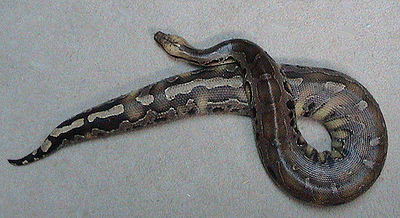
Borneo Short-tailed Python
The Borneo Short-tailed Python’s natural habitat is low elevation areas, the edge of Borneo’s swamps, Western Malaysia, East of Sumatra’s mountain range and nearby islands. Adult Borneos average 4-6 feet long and with larger ones weighing about 30 lbs. In captivity their lifespan is more than 20 years. Borneos come in various colors; the head […]
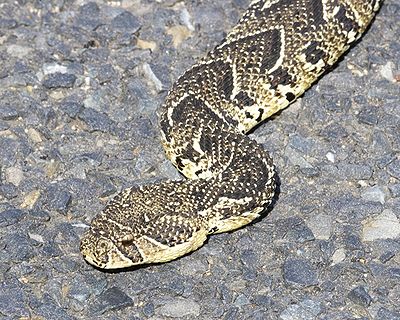
Western Hognose
The Western Hognose snake is known by a number of names including the Puff Adder and Plains Hognose. The Hognose has become a popular pet because of its availability, its wonderful colors, patterns and mutations and its ease of care. The Western Hognose was classified in the 19th century as a non-venomous, medium sized, diurnal […]

Python
What are some of the different species of Python like? The Ball Python grows to 3-5 feet long and lives up to 40 years. It is docile and easy to handle, but best to get a Ball Python bred in captivity. It will roll itself into a ball to avoid danger. A 30-40 gallon tank […]
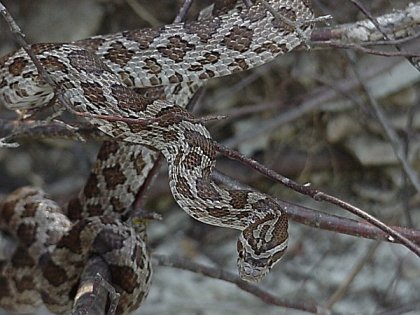
Great Plains Rat Snake
What are some facts about the Great Plains Rat Snake? The Great Plains Rat Snake is native to the U.S. and can be seen from New Jersey to Colorado and south to Texas and northern Mexico. It is sometimes known as Emory’s Rat Snake for the surveyor who collected them for the Smithsonian Institute. It’s […]
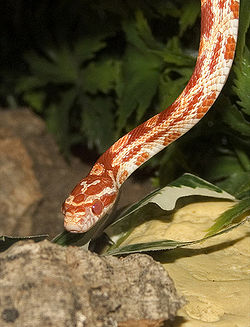
Corn Snake
What are some facts about the Corn Snake? Corn Snakes are native to the Southeast U.S. They are docile and easy to handle. They grow from 3-5 feet long and live about 15-20 years. Corn Snakes are great pets for beginners since they are easy to care for and rarely bite. How do I care […]
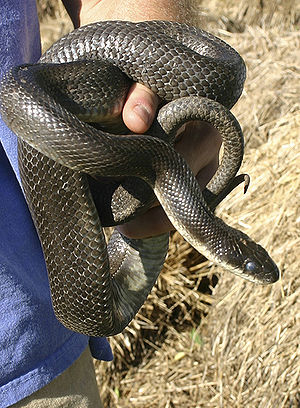
Black Rat Snake
What are some facts about the Black Rat Snake? The Black Rat Snake, also known as the Mountain Black Snake and Pilot Black Snake, lives in the North Central U.S., Vermont through to Wisconsin and south to Northeast Texas and Georgia. The coloring is black to dark brown with patches of red, yellow, orange or […]

